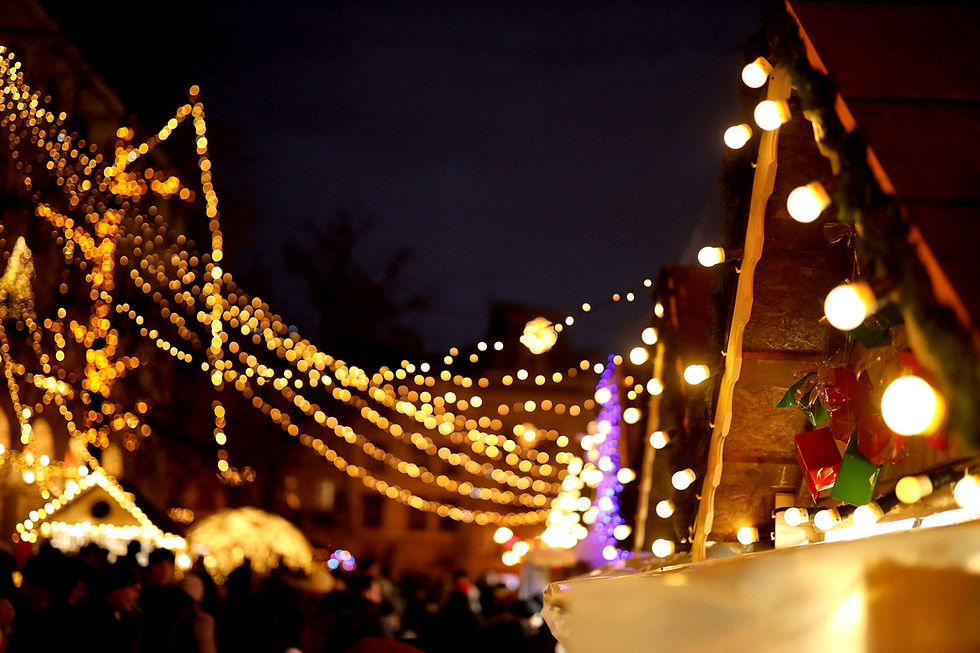How to camp with a baby and survive
- Littlest Elf Littlest Elf

- Aug 19, 2020
- 4 min read

Good vibes, we are becoming a nation of campers! This maybe doesn’t get top billing on BBC News, nor is it necessarily 100% true, but there is evidence and I’ve seen it with my very own eyes. On a long, family journey, recently, through the pretty country roads of Suffolk and Norfolk, we couldn’t turn a corner without there being a freshly painted sign to a tucked-away campsite. Yes, some tenting spaces seemed little more than an acre and a wonky standpipe, but they were enough to have happy campers pitching canvas and tightening guy ropes.
Since July, camping has been permitted across the UK and with less people being willing or able to go abroad this year, and with hotel space seeming as rare as gold, the option of camping is a good one.
This positive development sits well with the fact that introducing children in their early years to camping can ignite a life-long love of being outdoors that has endless benefits both physical and mental. We at Toddlers Inn know that being outside in a wild, open-air space increases our children’s confidence and explorative skills, and promotes a sense of calm, but in a recent study conducted by Plymouth University and the Camping and Caravanning Club, 98% of parents went so far as to say their children were happier when camping and a majority felt their kids did better at school in subjects like Geography and Science as a result of having the chance to connect with nature. https://www.plymouth.ac.uk/news/study-links-camping-and-happier-children
Of course, in these tricky times, social distancing on a campsite, particularly inside shared washing facilities, raises concerns, but new Governmental guidelines are designed to keep families as safe as possible. Naturally, the best possible scenario is one where a separate shower is assigned to each household group (some glamping sites offer such luxury), but where this just isn’t feasible, enhanced cleaning and a system of time slots or staggered entry to shower facilities should and must be in place. https://coolcamping.com/news/304-what-are-the-new-coronavirus-guidelines-for-campsites-and-what-do-they-mean-for-campers

On paper, camping with young babies can seem an absolute no-no — all that equipment, keeping bottles sterile, the dirty nappies, chilly nights — but in fact camping is sometimes easiest when children are small and portable and don’t move around all that much. Camping with a baby can be both relaxing and a lot of fun for all concerned, provided you’ve done your research, the campsite is suitable, and you’ve taken along the right equipment.
Here are 6 steps that increase the chances of creating a memorable (for the right reasons) camping holiday for a baby and Mum and Dad too…
1. Do a camping trial run with your baby in your back garden.
Road testing your equipment and camping technique is a great idea because if you’ve forgotten anything, you can always pop back in the house to get it and you’ll know it’s something you can’t do without. It’ll also show you what’s superfluous and what purchases you have yet to make.
2. Choosing the right site for your family. Ask yourself:
· how easy is it to carry a tent and kit to your pitch?
· does the campsite allow music in the evening which might disturb a sleeping baby?
· is there a family area where people may be more sympathetic to a crying baby? You may be more relaxed if you have a pitch well away from other tents.
· Is the campsite not too far from home, so that you can pack up and easily reach creature comforts if it all proves to have been a terrible mistake? This is particularly important if you and your baby are camping together for the first time.
3. Pick your time of year.
It might be easier to camp with a baby between late May and early September in the UK. A baby’s body is not great at self-regulating its temperature and it can quickly chill right down. It might be worth checking the Met-Office for the night-time temperatures in your destination so that you arrive well prepared.
4. Pick a pitch with some natural shade and take along an additional gazebo, so you can sit outside come rain or shine.

5. A good packing list might include:
· an elevated cot. You don’t want your baby on a damp floor
· mosquito net for over the cot
· baby bath
· think about buying a solar shower. There are loads available on Amazon
· insect repellent, citronella candles, suncream
· mothers may find it easier to keep warm with a duvet rather than a sleeping bag when breast feeding in the middle of the night
· large pot to boil water to sterilise bottles etc in
· potato masher to purée food with
· rope to create a drying line
· mat for your baby to play on
· a bit expensive but a gas-powered fridge with a freezer section can be invaluable if you want to pre-prepare all your baby’s food at home and freeze it
· make sure you take layers of breathable baby clothes which you can layer up or down to cope with sudden changes in day and night-time temperatures: vest, onesie, sleeping bag, a light blanket, sunhat, woolly hat and mitts
6. It’s important that Mum and Dad are comfortable too.
· Pack folding chairs and a few cushions and blankets.
· Relax about timetables — rise with the light, go to bed when it gets dark, go with the flow!
Happy holidays!



